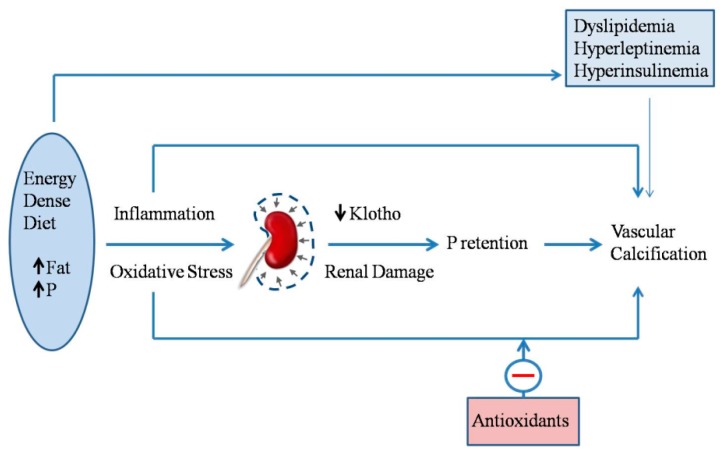Figure 4.
Energy-dense diets, that are rich in fat and phosphate (P), elicit inflammation and oxidative stress. In addition to the direct effects of inflammation and oxidative stress on vascular calcification, they also affect the kidney, inducing renal damage and decreasing klotho expression, thus resulting in P retention, which in turn, also promotes vascular calcification. Other biochemical changes related to eating energy-dense diets (e.g., dyslipidemia) are also likely to promote vascular calcification. Finally, antioxidants (e.g., vitamin E) have been shown to protect against vascular calcification in uremic animals eating energy-dense diets.

